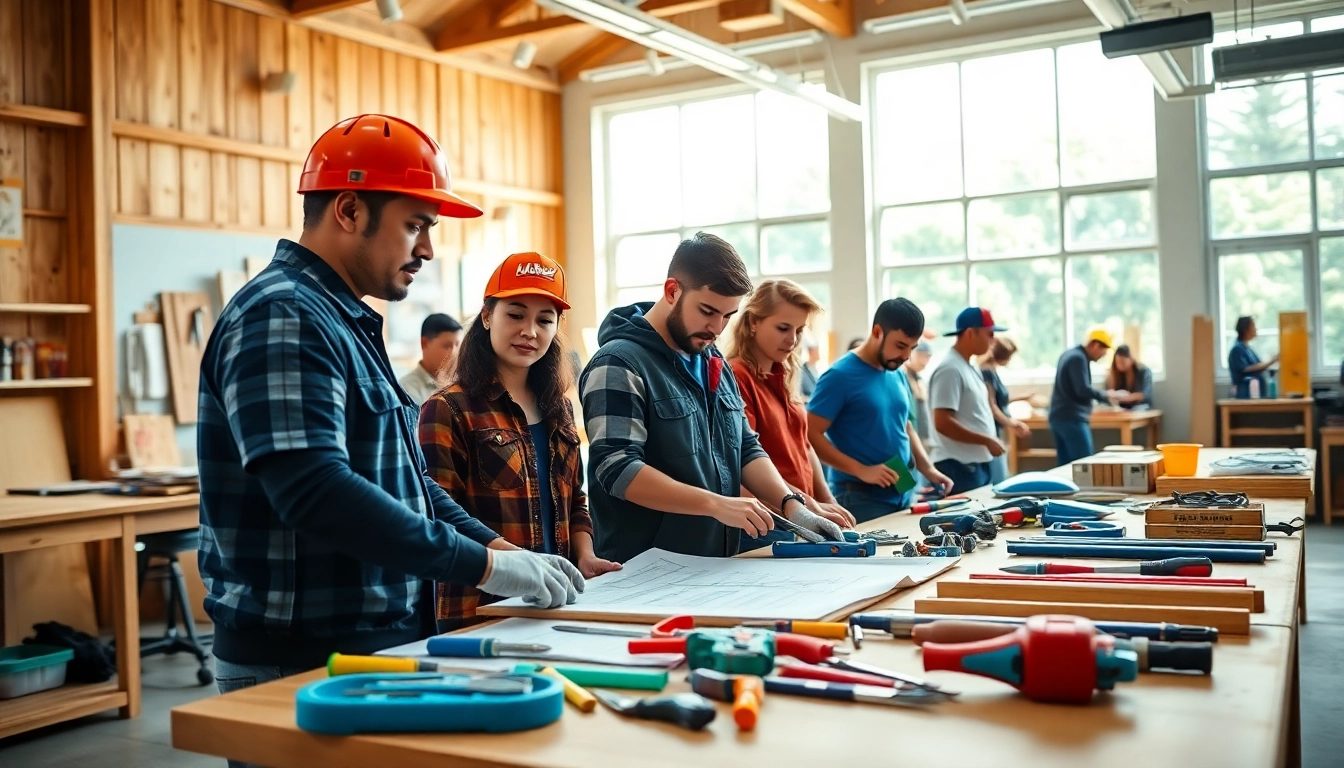The construction industry is evolving rapidly, driven by new technologies, sustainability demands, and a growing need for skilled labor. In Oahu, trade schools are emerging as critical hubs for training the next generation of construction professionals. These institutions are not only providing valuable hands-on experience but are also shaping a workforce ready to meet Hawaii’s unique construction challenges and opportunities.
At ABC Hawaii, we understand the vital role that trade schools oahu play in the development of skilled tradespeople who will build the future of the islands. This article explores how trade schools in Oahu are influencing the construction industry, the benefits they offer to students and employers, and why they are essential to Hawaii’s economic growth.
The Growing Importance of Trade Schools in Oahu
With the ongoing boom in residential, commercial, and infrastructure projects across Oahu, the demand for skilled construction workers has never been higher. Traditional four-year degree programs often overlook practical skills that are immediately applicable on job sites. This is where trade schools Oahu come in — they focus on vocational training, equipping students with real-world skills in a shorter, more affordable timeframe.
Trade schools provide specialized education in areas such as carpentry, electrical work, plumbing, HVAC, masonry, and welding — all critical components of construction. By honing these skills, students graduate ready to contribute effectively to projects, reducing the learning curve for employers and boosting overall productivity.
What Makes Trade Schools Oahu Unique?
Oahu’s geographical isolation and unique environmental conditions require construction professionals to be well-versed in island-specific building codes, sustainable practices, and weather-resistant techniques. Trade schools in Oahu tailor their curricula to reflect these realities, ensuring graduates are prepared for the island’s distinctive construction landscape.
Some standout features of trade schools Oahu include:
- Hands-on Training: Emphasizing practical, hands-on learning through workshops, internships, and apprenticeships with local contractors.
- Industry Partnerships: Collaborations with construction companies, unions, and government agencies to keep training aligned with current industry standards and innovations.
- Sustainability Focus: Integrating green building techniques and materials, which are critical in Hawaii’s environmentally sensitive context.
- Career Support: Providing job placement assistance, resume workshops, and interview coaching tailored to the local construction market.
How Trade Schools Oahu Benefit the Construction Industry
- Closing the Skills Gap
The construction industry in Hawaii faces a shortage of skilled workers, leading to project delays and increased costs. Trade schools directly address this gap by supplying qualified graduates who can hit the ground running. - Enhancing Workforce Diversity
Trade schools are more accessible to a diverse range of students, including those who may not pursue traditional college routes. This inclusivity enriches the construction workforce with varied perspectives and talents. - Supporting Local Economy
By training residents locally, trade schools reduce dependency on outside labor, keep wages circulating within the community, and foster long-term economic stability. - Driving Innovation
Students trained in the latest construction technologies and sustainable building practices bring fresh ideas to the industry, encouraging innovation and improved building quality.
Career Paths After Attending Trade Schools Oahu
Graduates from trade schools Oahu have multiple pathways in the construction field, such as:
- Carpenter: Building frameworks, walls, and roofs with precision.
- Electrician: Installing and maintaining electrical systems safely.
- Plumber: Ensuring efficient water and waste management systems.
- HVAC Technician: Managing heating, ventilation, and air conditioning systems.
- Mason: Crafting durable structures from brick, stone, and concrete.
- Construction Supervisor: Leading projects with practical knowledge and leadership skills.
Each of these roles is essential in completing construction projects efficiently and upholding quality standards.
The Role of Technology in Trade School Training
Modern construction increasingly relies on digital tools like Building Information Modeling (BIM), drones, and automated machinery. Recognizing this trend, trade schools Oahu incorporate technology training into their programs to prepare students for the future workplace.
This integration ensures that graduates are comfortable using tech-enabled tools that enhance accuracy, safety, and productivity on construction sites.
Why Choose Trade Schools Oahu?
- Affordable Education: Trade schools offer competitive tuition rates compared to four-year colleges.
- Shorter Programs: Most programs range from several months to two years, allowing quicker entry into the workforce.
- Certification and Licensing Preparation: Schools help students obtain industry-recognized certifications, increasing employability.
- Strong Community Ties: Local schools understand Oahu’s construction market, making their graduates highly sought after.
At ABC Hawaii, we encourage prospective students and employers alike to explore the benefits of trade school education as a foundation for strong, skilled construction careers.
Conclusion: Building Hawaii’s Future, One Trade School Graduate at a Time
The construction industry on Oahu is poised for significant growth, and trade schools Oahu are at the heart of this transformation. By providing targeted, practical training tailored to local needs, these schools are producing skilled workers who will shape the islands’ skyline and infrastructure for decades to come.
Whether you are a student considering a career in construction or an employer seeking qualified talent, investing in trade school graduates is investing in Hawaii’s sustainable development and economic resilience.
Ready to build a promising career or workforce? Connect with ABC Hawaii to learn more about trade schools in Oahu and how they can help you hit the ground running.
FAQ: Trade Schools Oahu & Construction Careers
Q1: What types of construction programs do trade schools Oahu offer?
A: Trade schools in Oahu typically offer programs in carpentry, electrical, plumbing, HVAC, welding, masonry, and construction management.
Q2: How long does it take to complete a trade school program in Oahu?
A: Most programs last between 6 months to 2 years, depending on the trade and certification level.
Q3: Are trade school graduates in Oahu in high demand by employers?
A: Yes, due to a local labor shortage and increasing construction projects, employers highly value graduates from trade schools for their practical skills and readiness. Don’t forget to visit the homepage for exclusive content.
